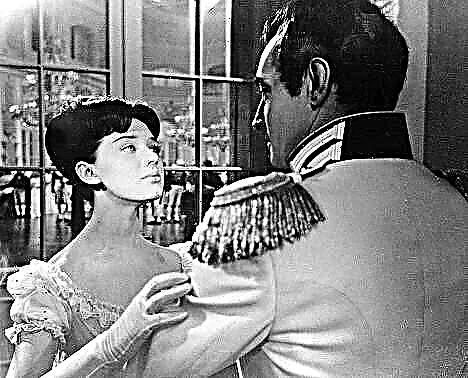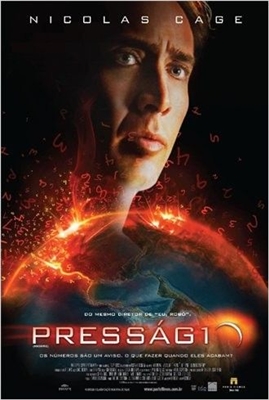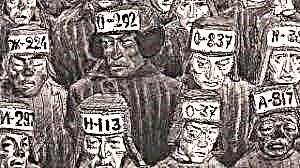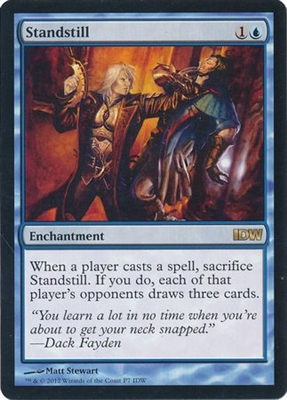Investors are often irrational, and the stock market is unpredictable.
The three-day crisis that began on May 28, 1962, clearly demonstrated how strange the behavior of Wall Street bankers can be, and how much investor decisions depend on their emotions.
On the morning of May 28, after six months of decline in the stock market, a large number of trades took place. The central office updated stock prices manually and did so late.
Investors panicked to learn that they were being offered outdated prices. They hastened to sell off their stocks, which provoked an irreversible decline in prices and led to a collapse.
The emotions that caused the collapse helped to recover after it: investors knew that the Dow Jones index could not fall below 500 points. When its value approached this limit, everyone started buying stocks, as they expected price increases. Three days after the collapse, the market fully recovered.
Employees of the stock exchange concluded that the government needs to pay more attention to the "business climate", that is, the mood and irrational expectations of the financial market.
This inevitable irrationality is the reason for the unpredictability of the market. The only true prediction of market behavior: "It will be unstable."
Ford Edsel: unsuccessful release of a new product
In the late 1950s, the Ford Edsel was supposed to become Ford's flagship product, but it turned out to be almost the biggest failure of the company.
Firstly, the company misjudged the market. In 1955, the American automobile market was booming. Family income increased, and people eagerly bought mid-priced cars in which Ford had no experience. At this time, the company began planning the Edsel model.
By the time Edsel was launched in 1958, there was an economic downturn in the market, and consumer tastes changed: small and cheap cars became popular.
The second reason for the failure is that buyers expected too much from the new car.
Ford spent $ 250 million on the development of Edsel (the most expensive project at that time) and actively covered this in car advertising. Consumers expected something revolutionary and were disappointed: the Edsel turned out to be an ordinary car.
The third reason was the wretched design of Edsel. Ford conducted a lot of psychological research to make the car attractive for young families with good income, but neglected the technical side. As soon as the product was released, buyers found several errors, from unreliable brakes to jerking during acceleration.
The federal income tax system should return to the state of 1913
One of the richest people on the planet, Warren Buffett admits that his tax is lower than that of his secretary. This shows how unfair the US federal income tax system is. Consider the development of the system since its inception.
In 1913, the federal government introduced income taxes. The reason was that government revenues decreased and spending increased. Initially, income tax rates were low. The main payers were the richest citizens. Then the rates were constantly rising, and the application of the tax spread to the rest of the population. But for the rich, more and more loopholes appeared. Now, income tax rates are quite high, especially for the middle class.
The modern way of structuring tax is inefficient.
Example. Freelancers do not conclude new contracts in the middle of the year so as not to receive more income. It is more profitable for them to pay less taxes than earn more.
A complex system of loopholes made taxation a real battleground.The Federal Tax Service annually fights with an army of consultants and lawyers specializing in circumventing the Tax Code in the interests of citizens.
Tax reform is politically impractical. Several US presidents tried to simplify the tax code, but all attempts were unsuccessful. The current system is beneficial to too many influential rich people who do not want to give up such advantages.
To solve this problem, the system must be returned to the state of 1913.
Ban insider trading
In 1959, Texas Gulf Sulfur, a commodity company, found a "gold mine" in Ontario, Canada. Their preliminary drilling tests discovered hundreds of millions of dollars of copper, silver and other minerals. People who knew about the find decided to keep quiet about it, secretly buying Texas Gulf shares.
When rumors began to spread, Texas Gulf organized a press conference and denied them, and its leaders continued to buy shares. When the company announced the find, the stock price skyrocketed, and its shareholders got rich.
Such behavior was considered unethical, but laws regarding insider trading were not respected. This time, the Securities and Exchange Commission charged Texas Gulf with fraud and insider trading.
The court had to decide whether the results of the test drilling really proved the value of the find, and whether the subsequent pessimistic press releases of the company were knowingly false.
The court passed a guilty verdict and stated that the public should have a “reasonable opportunity to respond” to any news affecting the value of the stock before company insiders start trading.
Since then, insider trading has been prosecuted, and Wall Street games have become a little cleaner.
Quickly achieved success can also quickly come to naught.
In the 60s, an automatic copy machine was a huge success, and its developer - Xerox - became the market leader. But soon the company crashed. The history of Xerox is divided into three stages:
1. Initial success against all odds.
For a long time it was believed that people were not interested in copying documents, since the process was expensive - the first copy of the equipment worked on special paper.
When in 1959, Xerox launched the first plain-paper copy machine, no one expected such a high demand for the product. Six years later, Xerox revenue soared to $ 500 million.
2. A period of sustained success.
Xerox confidently got to his feet and began to donate significant funds to charity. The company wanted to express its gratitude to those who helped it and use its position to influence society.
Example. Xerox became the second largest investor in the University of Rochester, which helped develop photocopying technology. In 1964, they spent $ 4 million on a television campaign in support of the UN after open attacks by right-wing politicians.
3. Success turns into defeat.
At the peak of his fame, in 1965, Xerox lost its technological leadership over competitors who produced cheap fakes. New research and development did not bring results - the company was in a quandary.
These stages are a striking example of the history of the development of any company. Xerox has gone through the third phase and is still at the peak of success.
New York Stock Exchange saves brokerage company and prevents financial crisis
In 1963, the brokerage company Ira Haupt & Co. did not have enough capital to trade on the New York Stock Exchange (NYSE), and its membership was subject to cancellation.
The reason for this is a fatal deal. The company bought the raw materials and took a loan from the bank on the security of warehouse receipts, which turned out to be false. Ira Haupt & Co. became a victim of commercial fraud and could not pay off a huge debt.
The company needed $ 22.5 million to become solvent again. The situation was aggravated by a panic over the Kennedy assassination. NYSE feared that due to bankruptcy Ira Haupt & Co.during a national panic, people will lose faith in their investments and bring down the stock exchange. She felt that the country's prosperity depended on the survival of Ira Haupt & Co., therefore, it allocated $ 7.5 million to save the company and averted the financial crisis.
Immoral or criminal acts are justified by “communication errors”
When a company finds itself in the center of a scandal, its employees claim that “communication problems” are to blame.
Example. If a company discharges toxic waste into water, it is not out of greed, but because “the management was unable to properly inform local managers about the new environmental strategy.”
In the late 1950s, General Electric (GE) carried out large-scale price fixing. About 29 electronics companies have agreed to fix equipment prices. This cost the buyer at least 25% above the regular price.
The scandalous case was brought to the court and the Senate subcommittee. Some managers paid fines and received a sentence, but the top executives of the company were not charged, as they claimed that everything happened due to a communication error: middle managers misinterpreted their instructions.
At that time, two types of policies were adopted at GE: formal and covert. If the leader gives you a task with a stone face - this is the official policy that you must follow, but if he winks at you, then you must do exactly the opposite of what was said. Sometimes you have to guess what the leader meant. And if you draw the wrong conclusions, you will be in trouble.
Despite GE’s policy prohibiting price discussions with competitors, many managers have suggested that it is just for eye contact. But as soon as they were put on trial for fixing prices, they realized that they could not blame the leadership.
This story shows that managers can really use communication problems to avoid responsibility for all kinds of violations.
Owner Piggly Wiggly nearly destroyed him in a stock market battle
Piggly Wiggly is the first supermarket with shopping trolleys, price tags for all goods and a cash register. In 1917, its owner patented the concept of a self-service supermarket. Now Piggly Wiggly is little known due to the actions of its eccentric owner Clarence Saunders, who went to great lengths in the fight against financial speculation.
In the 1920s, the Piggly Wiggly network expanded rapidly, but when a couple of franchises in New York went bankrupt, some investors took advantage of this by launching a massive sale of Piggly Wiggly shares in order to reduce their exchange rate (the Bears' raid).
A raid by the bears is a strategy in which investors make profitable investments if the price of shares falls, and then do everything possible to keep prices down. Saunders was furious and wanted to teach Wall Street a lesson: he started buying up Piggly Wiggly shares to buy back most of them. And he almost managed to do it.
He publicly announced that he wanted to buy all the shares of Piggly Wiggly and, getting into debt, he was able to buy 98% of the shares. His actions raised stock prices from $ 39 to $ 124 per share, and investor-attackers faced huge losses.
However, stock buyers managed to convince the stock exchange to grant them a deferral of payments. Saunders' position was fragile due to debts, and he was forced to declare bankruptcy.
If Saunders had more influence on the stock exchange, purchases would now be made at Piggly Wiggly, and not at Walmart.
Business savvy and a clear conscience can coexist
When a very influential government official starts a business and uses his connections to make money, many will accuse him of corruption. But this does not apply to the case of David Lilienthal.
In the 1930s, Lilienthal served as an officer under Roosevelt.In 1941, he was appointed chairman of the Tennessee Valley Authority, responsible for the development and distribution of low-cost hydropower. In 1947, he became the first chairman of the Atomic Energy Commission.
Leaving the civil service in 1950, Lilienthal proved himself to be a motivated businessman. Thanks to his experience, he was well versed in the mining industry. Lilienthal bought Minerals and Chemical Corporation of America, in distress, revived the company and made a small fortune.
His civil servants accused Lilienthal of corruption, but he was simply too committed to the interests of both parties. Lilienthal decided to take the best of both worlds and in 1955 founded the Development and Resources Corporation, a consulting agency that helped developing countries implement major public programs.
This ambitious undertaking proves that Lilienthal is an ideal businessman, responsible both to shareholders and to the people.
Shareholders rarely use their power
Theoretically, the most powerful people in America are shareholders. They own the largest corporations. Giant companies have a strong influence on American society. Many political scientists believe that the United States resembles an oligarchic feudal country rather than a democratic one.
Large corporations are led by a Board of Directors elected by shareholders. Once a year, shareholders gather to select the Board, vote on policy issues, and interview managers who manage the company. But these meetings are a farce.
The company management does not consider shareholders as its chiefs and tries not to devote them to the affairs of the company. This tactic works with most shareholders. Such meetings make interesting only professional investors who open discussion of the board of directors and management.
Example. At a meeting of AT&T shareholders, investor Wilma Soss lectured chairman of the board Friedrich Kappel and even invited him to consult a psychiatrist.
Professional investors like Soss often own shares in many companies and want to hold them accountable for their actions. But trying to stir investors up is a thankless task: there is nothing more passive and obedient than an investor who regularly receives dividends.
If shareholders more often used their power, company management would not have acted as he pleased.
You can change your employer even if you are initiated into a trade secret
The right to accept a tempting offer from a competitor of your current employer has not always existed. The precedent was created by research scientist Donald Wolgemuth.
In 1962, Volgemut led the engineering department of the aerospace company B.F. Goodrich, which was a leader in the manufacture of spacesuits. Then the company lost the Apollo project contract, which went to its main competitor, International Latex. When Volgemouth received an offer from International Latex to work on the prestigious Apollo project, he agreed without delay.
The bosses of Volgemouth were afraid that he would give the competitor the secrets of the production of spacesuits. Volgemouth signed a confidentiality agreement, and B.F. Goodrich sued him.
This controversial situation raised two key questions:
- Is it possible to take action against a person who has not yet violated a confidentiality agreement?
- Should he stop him from seeking a position that would encourage him to commit a crime?
In a fateful decision, the judge ruled that although Wolgemut was able to harm Goodrich, he could not be convicted in advance, and therefore he could contract with International Latex.
This incident marked a great victory for workers' rights.
The Union of Bankers was unable to protect the pound from speculators
In 1960, the British pound was one of the most prestigious world currencies.When the pound came under attack by financial speculators in 1964, central banks around the world felt obligated to defend it.
The attack was a consequence of the 1944 Bretton Woods Conference, when the largest economies in the world decided to create an international currency exchange on which all currencies would be exchanged at a fixed price. To maintain these fixed prices, governments often had to intervene in the foreign exchange market by selling or buying foreign currency.
In 1964, Britain experienced a trade deficit. Currency speculators believed that the UK would not be able to maintain a fixed exchange rate and would be forced to devalue the pound. They started betting against the pound, wanting to lower its value.
Faced with the threat not only to the pound, but also to the international currency exchange, the union of the ruling circles of monetary policy, led by the US Federal Reserve System, began to buy pounds to prevent currency devaluation.
It seemed that the tactics were working, the first attacks were repelled. But speculators were persistent and patient. In 1967, the union could no longer buy pounds, and the UK had to devalue the currency by more than 14%.
The war for the pound was only the first sign of the lack of the Bretton Woods system, which ceased to exist in 1971.
The most important thing
Our view of the financial market and business ethics is driven by history. For example, the struggle of one person for a change of employer had a great impact on the rights of workers in general.












